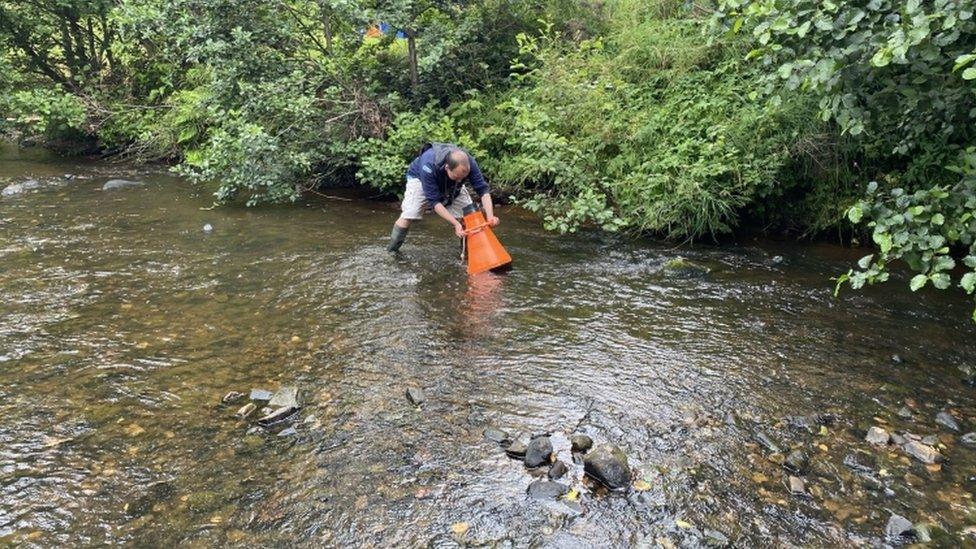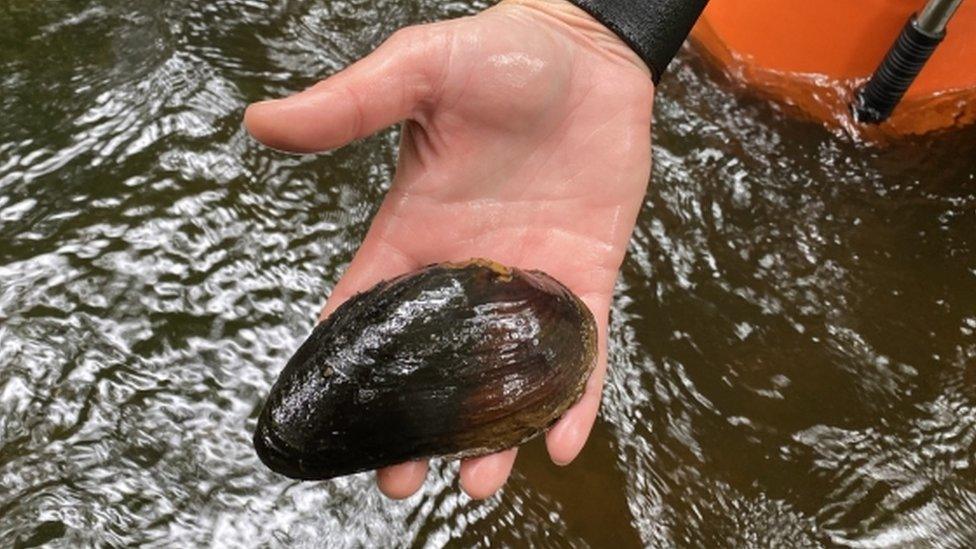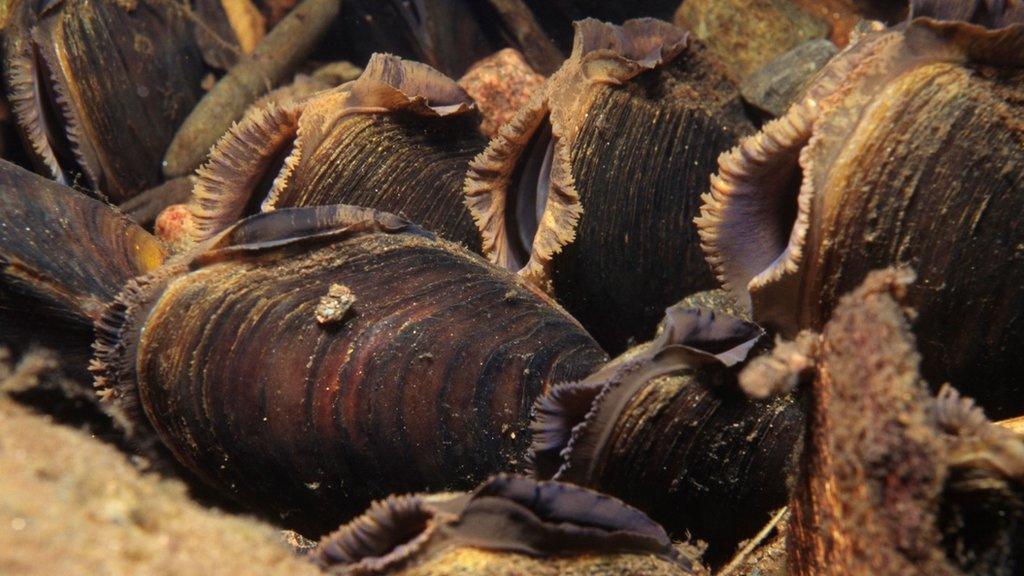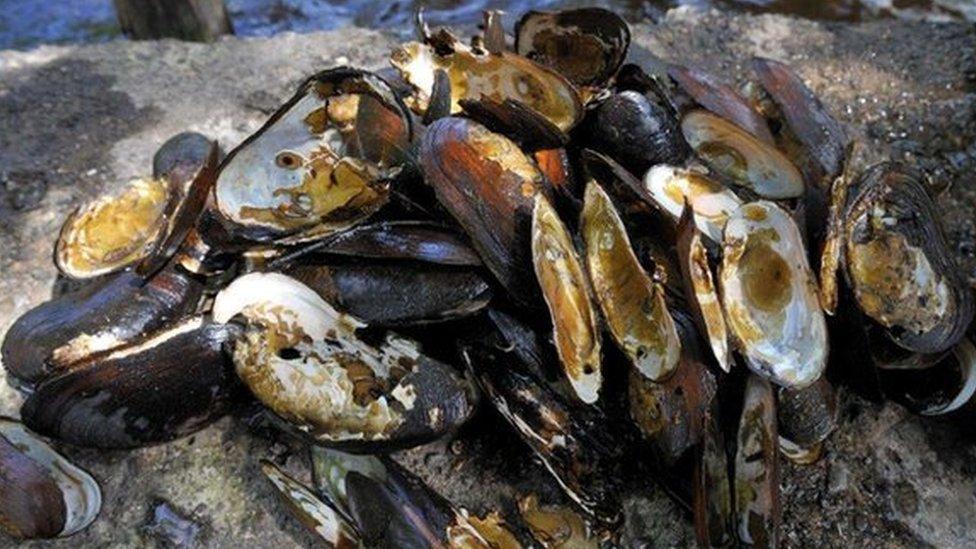River Esk rare mussels captive bred to protect species
- Published

Ben Aston, a Yorkshire Water ecologist, looking for the mussels in the River Esk
A rare type of mussel has been taken from a North Yorkshire river as part of a captive breeding plan to help avoid local extinction.
The freshwater pearl mussels collected from the River Esk are the last examples in the county and some are 80 years old, according to the project.
The species is critical to ecosystems, Yorkshire Water said.
The captive bred mussels will live in a special facility before being released back to the river after seven years.
Their return will improve biodiversity and improve water quality, the project said.
One adult freshwater pearl mussel can filter about 11 gallons (50 litres) of water per day, according to Yorkshire Water.

The mussel is a "key-stone species", said the North York Moors National Park Authority
Ben Aston, principal ecologist at Yorkshire Water, said: "Freshwater pearl mussels are incredible creatures, and their continued presence in British waters is really important."
The new project run is to be run by the Freshwater Biological Association (FBA) with the help of Yorkshire Water and the North York Moors National Park Authority.
Freshwater pearl mussels - Margaritifera margaritifera - have seen a steep decline in the UK and are considered endangered.
Their population decline has been linked to habitat loss, river engineering and reduced levels of certain species of fish.
Louise Lavictoire, research officer at the FBA said: "We're really excited we can help the Esk population to avoid extinction.
"We've had some success already rearing juvenile mussels from the Esk".
The project would "really help to kick-start the population again", she added.
The River Esk project is part of a wider body of work by the FBA at the Freshwater Pearl Mussel Ark.

Follow BBC Yorkshire on Facebook, external, Twitter, external and Instagram, external. Send your story ideas to yorkslincs.news@bbc.co.uk, external.
- Published10 March 2020

- Published15 June 2018
